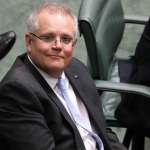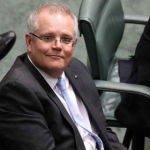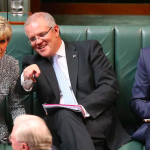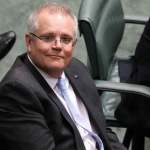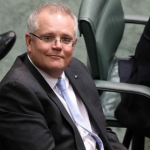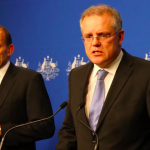Twilight of the Coalition: Morrison’s De Facto Vote of No Confidence
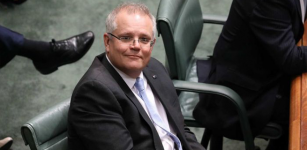
Things are just going from bad to worse for the Morrison government. Last week marked the first time an Australian government has lost a substantive vote since 1941. And despite the PM’s protestations that it wasn’t a de facto vote of no confidence, many took it like it was.
And, of course, it was the amended Phelps Medevac Bill that brought the barely-clinging-on Liberal Nationals government its monumental defeat. A piece of legislation that brought a bit of humanity back to our nation’s makeup, which has been sadly lacking when it comes to refugees.
The passing of the bill was a victory for Labor, the Greens and crossbenchers. With Bill Shorten doing some quick manoeuvring to remove a payment provision from the legislation, which effectively meant its passing wouldn’t be unconstitutional.
The defeat sent Morrison into a tiz. He took to the airwaves calling out that the bill that allows sick asylum seekers to come to Australia for necessary medical treatment would somehow weaken Australia’s borders as people smugglers move en masse to resume operations.
And by the end of the week, not only had the prime minister seemingly summoned more asylum seekers to Australian shores, but he also delayed a vote on a royal commission into abuse in the disability sector just so he could avoid another defeat.
Stalling on compassion
The Medevac Bill was introduced by Dr Kerryn Phelps in December last year. Hot off her historic victory in the Wentworth byelection, Dr Phelps explained in the second reading speech on the bill that the more than 1,000 asylum seekers in offshore detention are experiencing a medical crisis.
The doctor further set out that the legislation puts in place “a proper process for medical treatment ensuring that, when two treating doctors recommend the temporary transfer of any person in offshore detention to Australia for treatment, their orders are followed”.
And in an attempt to put off the humiliating defeat that eventually came last week, the Morrison government filibustered on the Medevac Bill on the final sitting day of parliament last year, so it didn’t make it to the lower house for a vote.
The amended bill that finally passed in the Senate last Wednesday, provides that asylum seekers and refugees on Manus Island and Nauru can be transferred for medical or psychiatric treatment, when two medical experts deem it necessary.
The home affairs minister then has 72 hours to sign off on the transfer, which can be prevented if it’s decided an individual poses a security threat or they have a substantial criminal record. And these provisions only apply to people being detained in offshore detention right now.
Irrational politicking
Even though the amendments made to the Migration Act 1958 only pertain to the current cohort in offshore detention, Operation Sovereign Borders architect Scott Morrison declared that the message being presented to people smugglers is that Australia’s borders are now open.
And when he was picked up on the fact that those coming to Australia by boat in the future won’t be able to get a medical transfer from offshore detention, Morrison put forth that “people smugglers don’t deal with the nuance of the Canberra bubble”.
Indeed, the prime minister implied that people smugglers in villages wouldn’t be explaining to prospective asylum seekers that they can’t get a medical transfer and therefore, it seemed that neither would he be sticking to the truth of the law whilst discussing the bill in the public arena.
Since the arrival of boat loads of asylum seeker is imminent, Morrison announced the government would be reopening newly-closed Christmas Island Immigration Detention Centre to get ready for the onslaught that he and his cronies seem to be anticipating like an election gift.
And in a further theatre of the absurd moment, Morrison said if any boats reach Australian shores, it’s Labor’s fault, whereas, at the same time, if no boats turn up, that’s on his government. And when quizzed on how these scenarios are both the case he said, “Because that’s true”.
Saved by the opposition
Sydney University constitutional law professor Anne Twomey in an article last week criticised Morrison’s dismissal of the relevance of precedent to his government’s historic defeat as “bubble nonsense”, as these “constitutional conventions” are “fundamental to the right to govern”.
Although, it’s not actually spelt out in the constitution, she further explained, “our constitutional system operates on the basis that the government must hold the confidence of the lower house of the parliament”.
And Ms Twomey pointed out that if Shorten didn’t push through an amendment to the Medevac Bill that meant a panel of doctors won’t be paid, it would have been considered a money bill. And if the legislation had been passed in that form, it could have threatened the Coalition’s right to govern.
At present, it’s up to the government’s own assessment as to whether it can continue to lead effectively, according to the law professor, as a vote of no confidence is unlikely to be brought. “But, its position may become more difficult if it accumulates a string of defeats,” Ms Twomey set out.
An inhumane government
And in what seemed to be an example of the Morrison government attempting to shield itself from another defeat at the end of last week, it filibustered in question time to bring about the longest one in history and stalled a vote on a royal commission into the abuse of people with disabilities.
The Senate passed a motion calling on the government to set up the royal commission, which was to be introduced into the lower house on Thursday. Inquiries like these are usually set in motion by the government and not by a vote. But this motion was moved by Greens Senator Jordon Steele-John.
It seems that in its last days in power, the Coalition is set to continue its inhumane decisions for its own benefits, whether that by trying to deny sick long-term detainees medical treatment, or by refusing those with disabilities an avenue to bring about an end to their abuse.


